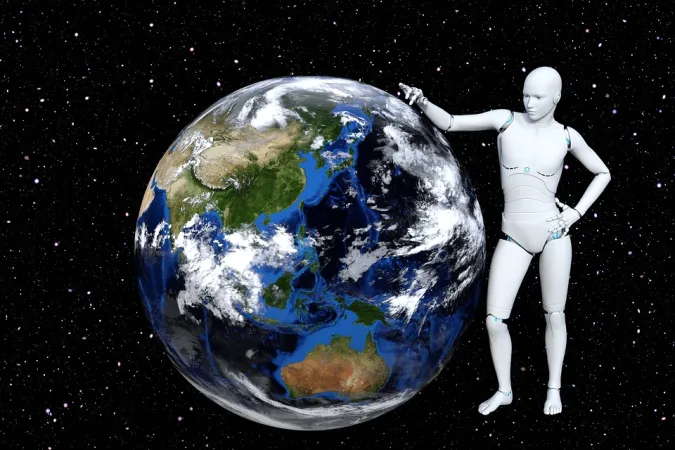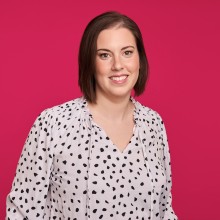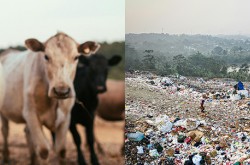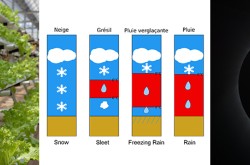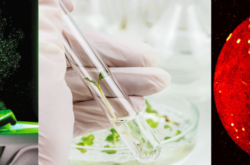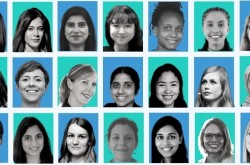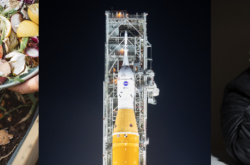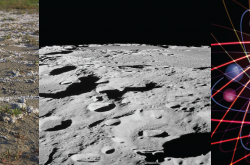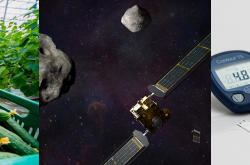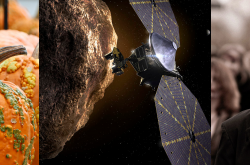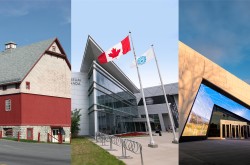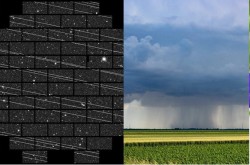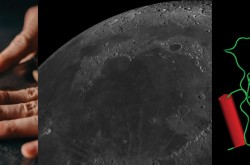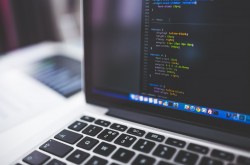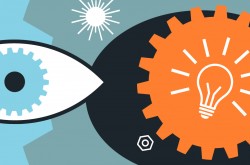Artificial intelligence and the fight against climate change
What is the future of innovation in science and technology? What impact will it have on society?
These two questions underpin Curiosity on Stage, Ingenium’s thought leadership series on contemporary issues of global importance. Each event — staged at the Canada Science and Technology Museum in Ottawa — brings together leaders from private industry, academia, and government to discuss scientific and technological issues that are topical, divisive, and important to Canadians.
In fall 2019, we posed the question, “Can artificial intelligence (AI) tackle climate change?” Recently, the media has been flooded with warnings about climate change, and wildly contrasting predictions about the promise and pitfalls of AI. What you may not know is how AI and climate change are linked. To explore this question, we brought in Nadia Koukoui and Isabelle Fotsing —the cofounders of Watergeeks, an award-winning, Montreal-based cleantech startup that leverages AI to power effective, second-hand markets in the industrial sector. We also invited Dr. Mostafa Farrokhabadi, the grid analytics and technology Director at BluWave-ai, an award-winning start-up that offers AI-enabled solutions to accelerate the adoption of renewable energy resources and electric transportation.
Following the event, these AI experts spoke to the Ingenium Channel about their companies and the future of AI in sustainability initiatives.

Ingenium Channel (IC): How could AI help Canada meet its carbon reduction goals (the carbon quota)?
Watergeeks (WG): Artificial Intelligence can definitely help us meet our carbon quota. Watergeeks is using AI to make it easier for industries and municipalities to reduce industrial waste and overproduction. With industries and municipalities across the globe joining this circular economy, we can reduce the carbon footprint associated with manufacturing brand-new items, our water and energy footprints, and the impact on our ecosystems and human health. Watergeeks leverages AI to make reusing easier, while others use AI to help achieve a greener energy production or to speed-up research. Artificial Intelligence is even used to predict the best strategy to meet the carbon quota requirements.
BluWave-ai (BW): Any solutions that result in more efficient production, transmission, and consumption of energy — including AI-enabled optimization and control techniques — would allow the carbon quota to be used for more meaningful tasks, such as the implementation of wind and solar farms. In terms of energy production, deciding the right mix of generation units to produce energy (solar, wind, nuclear, etc.), determining the most efficient amount of energy production, and figuring out the optimal time of day to produce it, are among the values that an intelligent control and monitoring system would bring to the grid.

A circular economy can help reduce the carbon footprint associated with manufacturing
IC: Artificial intelligence is a useful tool for predicting and measuring the impact of climate change. However, to perform those tasks accurately, AI requires huge amounts of data. Can you comment on the ethics of collecting and using personal data? What sort of data do you get, and from where? Can you ensure that the data is kept safe?
BW: Privacy is always a concern when dealing with data-driven solutions. There are multiple rules and regulations, depending on the jurisdiction, that ensure the privacy of users’ behind-the-meter data that BluWave-ai collects. In addition, several of our technology applications deal with data aggregated at the city/neighbourhood distribution transformer (or even higher levels), meaning that the privacy of customers will not be compromised.
WG: Personal data protection is a sensitive topics these days, and it’s important that regulations that are in place to protect the public be enforced. At Watergeeks, we don’t use personal data to develop or run our AI-algorithms. We use information tied to heavy-duty equipment. It’s not information that is tied to a specific individual. We also use publicly available ‘open’ data to fine tune our algorithms.
IC: What is the role of consumers in the shift towards a modern, greener electric grid?
BW: With the increasing amount of distributed energy resources — such as rooftop solar panels, behind-the-meter energy storages, and electric vehicles — the consumer’s role is changing from a passive, one-way recipient of energy to that of an active, bi-directional trader. In that context, the concept of ‘prosumer’ — acting as a consumer and producer at the same time — has been introduced in modern electric grids. Hence, these prosumers, along with consumers whose demand would respond to system operational needs, are enabling elements of a fully decentralized, green, and intelligent electrical grid.

Solar panels on residential homes represent both a solution to lowering the carbon footprint, but also a challenge for the electric grid.
IC: In terms of political leadership, can you comment on the future of innovation in climate change mitigation technologies (notably AI)? What about policy decisions that may affect this industry?
BW: From the implementation perspective, AI is still in its infancy stages. There’s definitely room for more investigation into its positive and negative consequences on our daily life; for example, its impact on energy and hardware resources. With the right mix of policy and regulation, and the appropriate application, the positive side of disruptive technologies is often proven to outweigh potential negative consequences. The Liberal government has been serious in policies around innovation and climate change mitigation. Our company received a highly competitive government grant for $2.4M as part of the Sustainable Development Technology Canada program. I hope the new minority government keeps up these initiatives, and builds on top of the momentum created by the previous government.
WG: Earlier this year, the federal government presented its budget which includes a $950-million investment in industry-led innovation superclusters, including artificial intelligence for supply chain management. This is excellent news for Watergeeks and anyone working in AI and logistics. Hopefully, a good portion of this will go towards financing clean tech projects that will help to mitigate the impacts of climate change. It is also important to know that technology alone won’t solve our current climate crisis. A lot has to do with consumerism, changing attitudes, and some of our habits.
For questions and/or comments please reach out to info@watergeeks.io and/or info@BluWave-ai.com
Please note: this interview has been edited for length and clarity.



